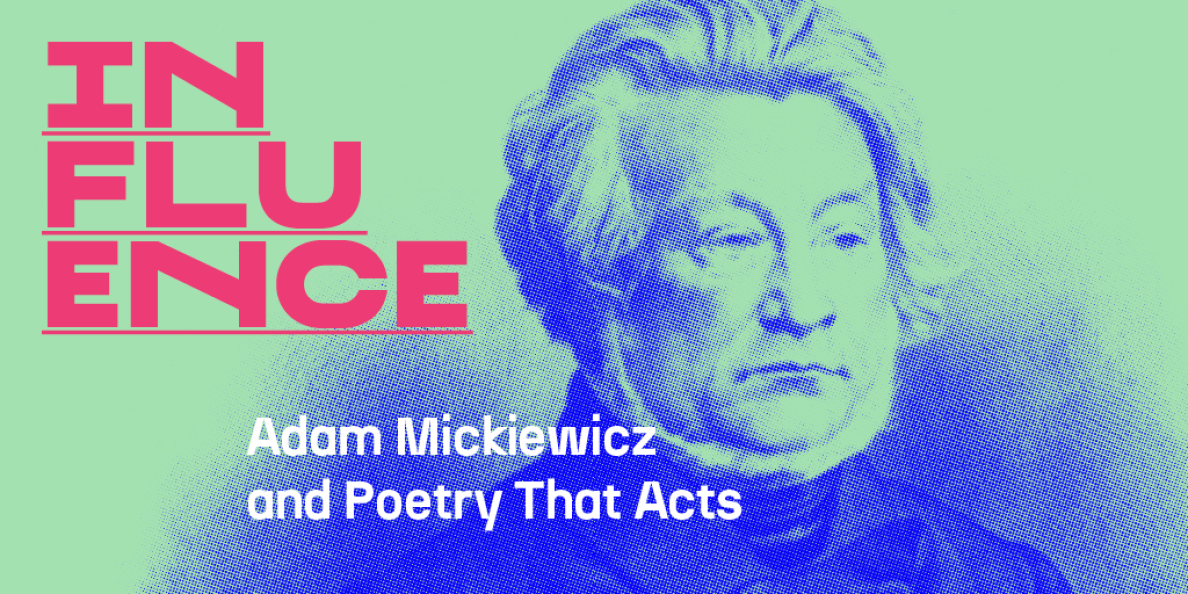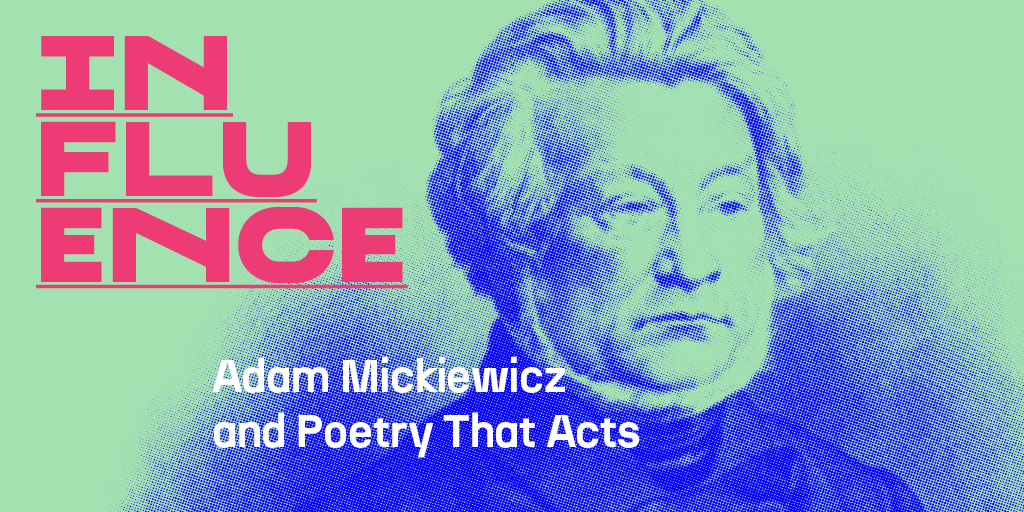
How did Adam Mickiewicz’s works influence world literature and the world we live in? A new project by the Adam Mickiewicz Institute presents the history of the Polish creator’s global influence, revealing his lesser-known side. The special Culture.pl subpage “INFLUENCE. Adam Mickiewicz & Poetry That Acts” is available from 6 November 2024.
Adam Mickiewicz - Poetry with International Impact
On 6 November 1824, Adam Mickiewicz left Polish lands forever. The Poet, sentenced by the Russian Empire’s court to settle in Russia, never returned to his homeland. However, this moment also marked the beginning of a new chapter in Mickiewicz’s life and the global history of his influence. The autumn of 2024 will mark the 200th anniversary of Adam Mickiewicz’s departure from Poland. To commemorate this date and the Poet’s role in the history of Polish and world culture, the Adam Mickiewicz Institute has prepared an online project entitled “INFLUENCE. Adam Mickiewicz & Poetry That Acts”.
Mickiewicz’s works and the history of their reception worldwide help us better understand the longevity and roots of many of today’s problems and struggles. They remain a crucial key to the challenges facing the contemporary world. At the same time, the project provides a deeper insight into the Poet himself and the profound meaning of his works. “INFLUENCE” shows that the goals and values for which the Poet fought throughout his life are central to modernity, and the fight for them continues before our eyes in the 21st century, manifesting, for example, in opposition to wars, anti-freedom movements, and colonial oppression.

16 Articles on Poetry that Acts and Influences the World
The project “INFLUENCE. Adam Mickiewicz & Poetry That Acts” consists of 16 articles that together form a coherent narrative mapping the international influence of Mickiewicz’s works and activities. These texts present, in a concise and accessible form, the most notable examples of Mickiewicz’s influence outside Poland – on creators and nations of the former Polish-Lithuanian Commonwealth (Ukrainians, Belarusians, Lithuanians, Jews), as well as on authors in distant regions such as the Caucasus, China, Brazil, and Crimea.
The authors explore how Mickiewicz’s “Forefathers’ Eve” interacted with the anti-tsarist poems of Taras Shevchenko, how “Pan Tadeusz” contributed to the revival of modern Lithuanian literature, and how other works by Mickiewicz shaped the sense of patriotism among Belarusian poets. They show how “To the Polish Mother” was read in Brazil through the lens of the experience of slavery and explain the significance of the “Crimean Sonnets” for poets associated with the Ukrainian peninsula. The topic of Mickiewicz in Russia, both as a pioneer of the “Petersburg text” in Russian literature and as an imperiologist who offered political diagnoses of the Russian Empire, is also important. These stories reveal the profound and widespread, though largely unknown, influence of Mickiewicz on world literature. Foreign authors and readers engaged with the works of the Polish poet, drawing inspiration from his ideas for their own writings and new forms of resistance in the fight for cultural values and national self-determination.
Articles in the Project “INFLUENCE. Adam Mickiewicz & Poetry That Acts”
- Shevchenko, Mickiewicz & the Birth of Anti-Imperial Poetic Discourse
- The Native Poet of Belarus: The Field of Mickiewicz & the Birth of Belarusian Literature
- ‘Lithuania, my homeland…’: Pan Tadeusz & the Origins of Modern Lithuanian Literature
- A Prophet in a Foreign Country: How the Jews Read Konrad Wallenrod
- The Tatar Crimean Sonnets: Resistance & Poetry in an Occupied Territory
- ‘To the Polish Mother’ in Brazil: The Experience of Slavery in South America
- A Promethean Mickiewicz in the Caucasus: Farys and Wallenrod in Georgia and Armenia
- Faris, A Polish Rider amid the Sands of the Desert – Among the Arabs and Jews
- The Power of Mara Poetry: Mickiewicz’s Voice of Revenge in China
- Adam Mickiewicz and the Beginnings of the ‘Petersburg Text’ of Russian Literature
- The Poet as an Imperiologist: What Mickiewicz Knew about Russia
- Alexander Blok in Warsaw: The ‘Polish Poem’ of Russian Literature
- ‘Hail, dawn of freedom’ – Mickiewicz and the national uprising
- The Only True Wallenrods
- ‘Let your Spirit descend’ – Mickiewicz and the Church
- ‘Books of the Genesis of the Ukrainian People’ & a United Europe
We invite you to read them in Polish and in English!
The project was initiated by the Adam Mickiewicz Institute, publisher of the Culture.pl portal.

